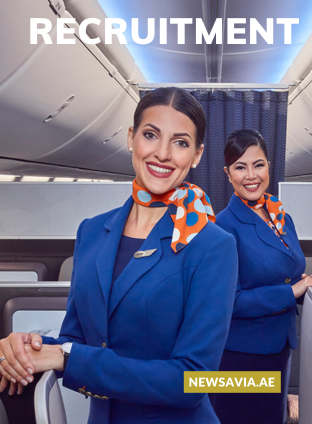Western restrictions cripple Russia’s air transport sector, pushing airlines toward high-risk operations and dependence on outdated aircraft
Russia’s civil aviation sector is facing a deepening crisis, with Western sanctions severely undermining fleet safety, operational capability, and international connectivity. More than two years after sweeping measures were imposed in response to the 2022 invasion of Ukraine, aviation experts now warn that the Russian airline industry is approaching a critical threshold—with at least 200 commercial aircraft likely to be decommissioned in the coming months, and international standards increasingly at risk.
According to Rostec CEO Sergei Chemezov, Russian carriers are on track to lose nearly a third of their active commercial fleet, which currently includes around 700 aircraft, most of them Western-built Airbus and Boeing jets. Despite continued reliance on these aircraft—used for over 90% of domestic flights—Russian airlines are being forced to stretch operations without access to certified maintenance, spare parts, or manufacturer support.
Maintenance Crisis and Safety at Risk
The core of the crisis lies in the inability to conduct routine and mandatory safety checks. Western manufacturers and maintenance partners—such as Boeing, Airbus, GE, and Pratt & Whitney—have ceased all cooperation. This has left Russian operators unable to perform FAA and EASA-mandated airworthiness directives (ADs), including major C and D checks that typically require OEM (original equipment manufacturer) authorization.
With supply chains blocked, Russian airlines have resorted to “cannibalizing” grounded aircraft—removing components to keep other planes flying. Others have reportedly smuggled parts via third-party countries, including Turkey and India, a practice that raises serious concerns about authenticity, documentation, and airworthiness.
Consequently, aviation incident rates have soared. Independent sources report a 25% rise in in-flight incidents in 2024over the previous year, including 11 engine failures in just two months. The Airbus A320neo fleet has seen nearly 50% of aircraft grounded, largely due to unresolved engine issues that require OEM intervention.
Domestic Dependence and Limited Hope from Indigenous Aircraft
While Russia has pinned its hopes on homegrown aircraft models like the Irkut MC-21 and Sukhoi SJ-100, no units have yet been delivered to commercial airlines. Analysts suggest production remains years behind schedule due to continued reliance on Western-supplied avionics, engines, and systems—many of which are now banned.
Despite these constraints, domestic passenger traffic rose by 5.9% in 2024, as Russian airlines pivoted toward internal routes and select non-sanctioning countries in Asia, the Middle East, and parts of Africa.
International Isolation and Costly Workarounds
Airspace closures by the EU, US, and allied nations have also cut off major international corridors. Russian carriers are now rerouting through transit hubs like Istanbul, Dubai, and Belgrade, drastically increasing flight times and costs. Direct connections with Europe and North America remain suspended, and even routes to neutral countries are affected by reduced fleet availability.
Ticket prices for Russian travelers have risen sharply, with international journeys requiring longer and more expensive detours. Industry insiders warn that this isolation, combined with shrinking fleet capacity, could permanently alter Russia’s role in global aviation.
Moscow’s Response: Legal Maneuvers and Strategic Pivots
In response, the Russian government nationalized leased aircraft, effectively seizing foreign-owned assets to maintain operational capacity—though this move has strained legal and diplomatic relations. Financial subsidies have been injected into the sector, and new deals are being explored with countries like China, though Chinese jets remain heavily dependent on Western technology.
Import substitution remains the long-term objective, with official plans to manufacture over 1,000 aircraft by 2030. However, without access to key systems and global supply chains, the path to independence is uncertain.
Russia has also leveraged insurance settlements to gain de facto ownership of previously leased aircraft, and continues to rely on clandestine part acquisition networks—albeit with the looming risk of international legal consequences and compromised safety.
The Road Ahead: A Shrinking, Isolated Fleet
With mounting safety concerns, rising incidents, and no immediate resolution in sight, some Russian aviation experts fear that 2025 may be the last year of legal operation for a large portion of the fleet under current conditions. Unless sanctions are lifted or circumvented through radical technological shifts, the country risks being left with an outdated and increasingly unserviceable air transport system.
For aviation professionals in the GCC and wider Middle East, the implications are multifaceted. Russia’s diminished presence in international air corridors may create new opportunities for carriers in the Gulf, particularly as transfer traffic grows through regional hubs. However, the geopolitical fragility of global aviation access remains a shared concern.
Russia’s civil aviation, once integrated into the global system, now stands as a cautionary case study in how political conflict, economic sanctions, and supply chain dependence can rapidly unravel a critical national industry.
Photo : Jetphotos

